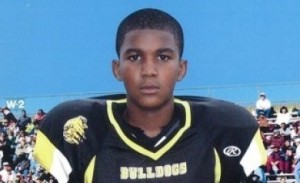Who’s going to sing a black boys’ song?
For Trayvon, Michael and Martin, and all other black boys
sable mappings cover him
like an ethno-alien cartogram
dipped deeply and precisely in ebony timber
whipped in/two
industrial multiplexes
distorted by a pre/fix of datum
convictions
venomous raindrops of marked difference inflate him
perorating from tongue to tongue
oral histories
scientific legends
transmutations
generation to generation
disassembled from psyche to psyche
now born into a world already known
(known for what?)
adultification
“never havin been a [boy]”
being born a man
where pornographic dreams encrust him
intentions asphyxiate hallucinations of thriving
(thriving for what?)
truth
and freedom
freedom from anxiety
modernity’s signs and symbols
and parasitic epistemes that manipulate his living flesh
resurrection
somebody/anybody
sing a black [boys’] song
bring [him] out
to know [himself]
to know you
but sing [his] rhythms
carin/struggle/hard times
sing [his] song of life
[he’s] been dead so long
closed in silence so long
[he] doesn’t know the sound
of [his] own voice
[his] infinite beauty
[he’s] half-notes scattered
without rhythm/ no tune
sing [his] sighs
sing the song of [his] possibilities
sing a righteous gospel
the makin of a melody
let [him] be born
let [him] be born
& handled warmly.[1]
[1] Inspired by “lady in brown.” For more, see Ntozake Shange, For Colored Girls who have Considered Suicide When The Rainbow is Enuf (New York: Scribner Poetry, 1975), 3-5.





36 Comments